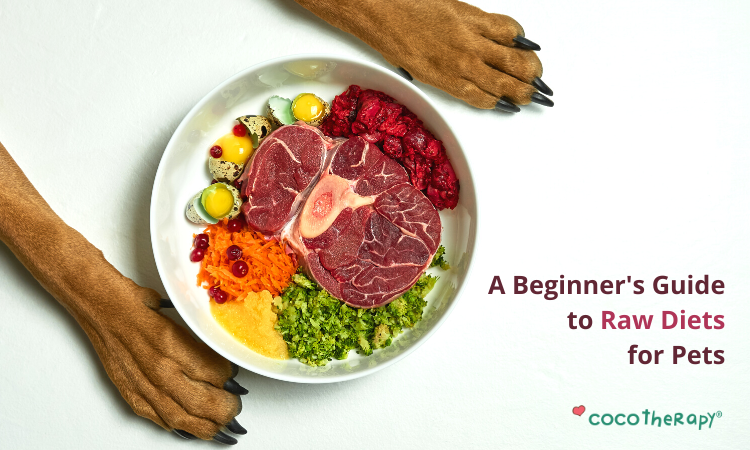Coconut oil is one of the most popular natural health products on the market today. But like any other product, it has its share of myths and misconceptions.
Here at CocoTherapy, we're often asked questions about the safety and efficacy of coconut oil, and many of the same concerns come up again and again.
With all the information (and misinformation) out there, it can be hard to know what to believe about coconut oil. So, in this post, we'll dispel some of the most common myths about this amazing health product!

⛔ Myth: Coconut Oil Is High in Cholesterol
One of the most pervasive myths about coconut oil is that it's high in cholesterol and can increase cholesterol levels in the blood. Proponents of this claim point to the fact that coconut oil is a saturated fat, and saturated fats are known to raise cholesterol levels.
✅ Fact: Coconut Oil Can Improve Cholesterol Ratios
While it's true that coconut oil is a saturated fat, many people overlook the fact that not all saturated fats are created equal. Coconut oil is made up of medium-chain triglycerides (MCTs), which are metabolized differently by the body than long-chain triglycerides (LCTs). In addition to this, coconut oil is considered a cholesterol-free fat, containing only 0-14 ppm (parts per million) of cholesterol, compared to corn oil (50 ppm) and butter (3,150 ppm).
In fact, studies have shown that coconut oil can improve the overall cholesterol ratio (total cholesterol/HDL cholesterol) and reduce the risk of heart diseases. This means that far from being harmful, coconut oil can actually be highly beneficial for heart health!
⛔ Myth: Coconut Oil Causes Pancreatitis
Another common concern about coconut oil is that it can cause pancreatitis, a condition characterized by inflammation of the pancreas. Pancreatitis has been linked with high-fat diets, especially in older, overweight, or inactive animals. That's why some people believe that coconut oil can put undue strain on the pancreas, leading to pancreatitis.
✅ Fact: Coconut Oil Can Help Support Pancreatic Health
Coconut oil doesn't need pancreatic enzymes for digestion like other fats do, so taking it can ease strain on the pancreas. When ingested, coconut oil is absorbed through the portal vein and goes straight to the liver where it's converted into ketones and used for energy. This makes it a highly efficient source of fuel for the body.
In addition, the MCTs in coconut oil can help regulate blood sugar levels, which is especially beneficial for pets with pancreatitis. Coconut oil can also enhance the absorption and bioavailability of fat-soluble foods, medications, and vitamins. This means that coconut oil can help pets that can't tolerate other forms of fat get the nutrients they need.
⛔ Myth: Coconut Oil Can Cause Weight Gain
Given that coconut oil is a saturated fat, it's not surprising that some people are worried that it will cause their pets to put on excess weight. After all, we've been told for years that saturated fats are bad for our health and can lead to weight gain.
✅ Fact: Coconut Oil Can Help with Weight Loss
Coconut oil is lower in calories than many other cooking oils, and it's actually an effective weight loss aid. The MCTs in coconut oil are metabolized quickly and used for energy, rather than being stored as fat. This helps boost metabolism and aids in weight management.
What's more, coconut oil can help suppress appetite. All fats slow down the emptying of the stomach, helping you feel full for longer, but studies have shown that MCTs have a greater satiating effect than LCTs. This means that coconut oil can help your pet feel fuller for longer and prevent them from overeating.
⛔ Myth: Coconut Oil Interferes With Thyroid Function
Some people believe that coconut oil can have a harmful effect on the thyroid and depress thyroid activity, leading to conditions like hypothyroidism and hyperthyroidism. The thyroid gland plays a major role in metabolism, growth, and development, so this myth can be particularly concerning for pet parents.
✅ Fact: Coconut Oil Supports Healthy Thyroid Function
Coconut oil is actually beneficial for the thyroid gland! Unlike polyunsaturated fats that can suppress thyroid function, the saturated fats in coconut oil help support and enhance thyroid activity.
About two-thirds of the fats in coconut oil are MCTs. When consumed, the body breaks down MCTs and utilizes medium-chain fatty acids (MCFAs) for their beneficial properties. MCFAs are immediately transported from the digestive tract into the liver without needing bile to be metabolized. They are then used for energy rather than being stored in the body like other types of fats.
The MCFAs in coconut oil are especially beneficial for animals with hypothyroidism as they help balance the thyroid, promote weight loss, and provide a higher level of energy and vitality. Coconut oil also contains high levels of lauric acid. Taken orally, the body converts lauric acid to monoglyceride monolaurin which has potent antimicrobial properties.
The Bottom Line
There are plenty of myths and misconceptions about coconut oil. But the fact is that it's a healthy, natural product that's been used for centuries to support overall health in humans and animals.
Coconut oil is safe for pets and can offer numerous benefits, from supporting pancreatic health to helping with weight loss. In fact, CocoTherapy Virgin Coconut Oil is often recommended by veterinarians as supplementation to a wellness plan. So, if you're looking for a healthy, natural way to support your furry friend's health, coconut oil is a great option!
In order to enjoy the health benefits of coconut oil, always remember to choose a high quality, therapeutic-grade oil such as CocoTherapy Organic Virgin Coconut Oil. Our oil is sourced from our USDA-certified organic family farm in the Philippines, and carefully manufactured in our own facility. In addition, be sure to always feed your pet coconut oil in moderation as part of a balanced, species-appropriate diet.



